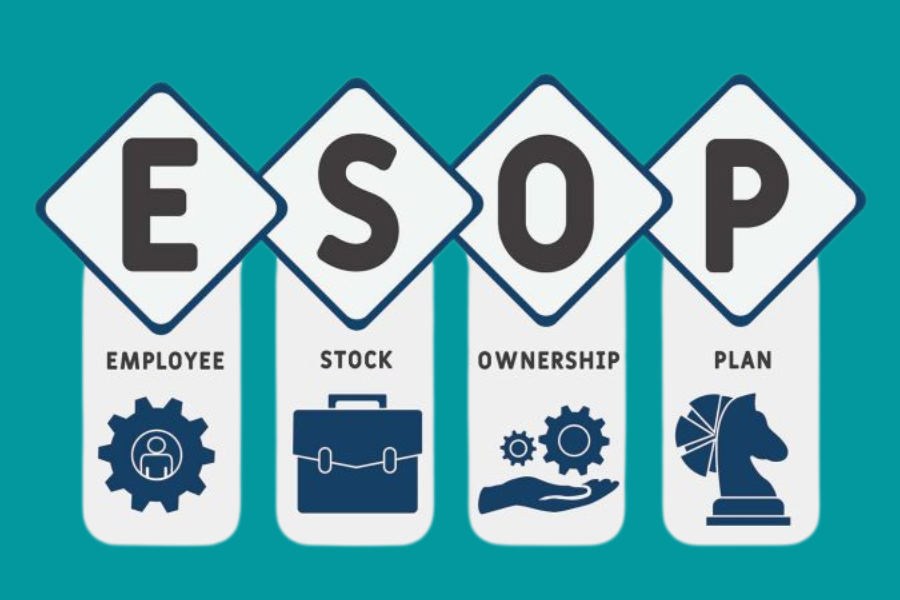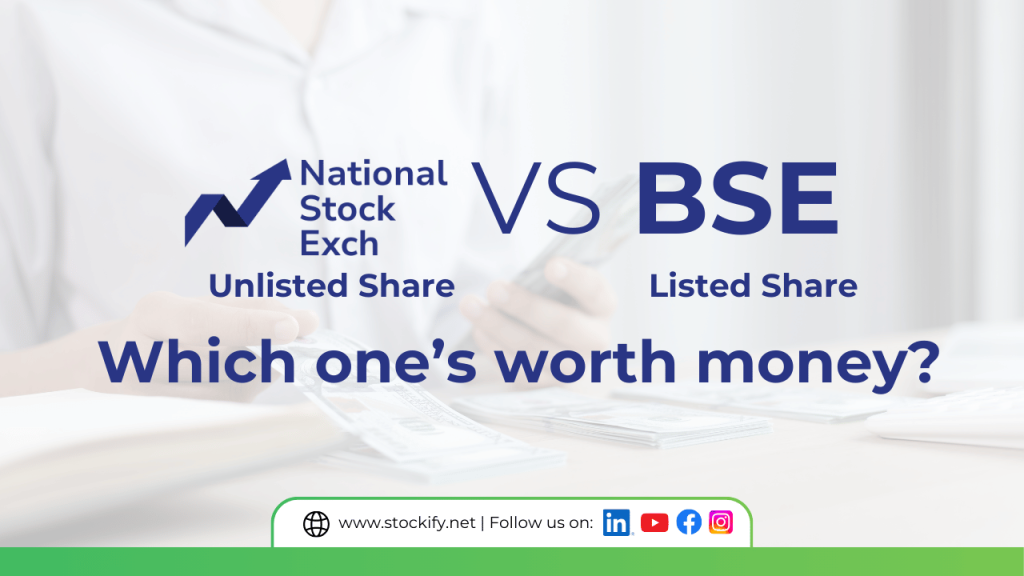Table of Contents
In recent years, the country has witnessed a remarkable growth in the count of retail investors and market valuation. Following the evolution, there is a quest for adequate returns from alternative investment options like unlisted securities. Investors can opt for unlisted shares investment in many giant corporations for higher capital gains. Moreover, an investor can also take the assistance of an unlisted share trading platform. If you are curious to know the expected return of unlisted shares, read along with this article.
Understanding unlisted shares
Unlisted shares are securities of companies that are not available on the stock exchange or have an IPO. Since SEBI regulates the stock market, and market pricing and disclosures are transparent, investors’ capital is at lower risk. Consequently, investors have to use due diligence before investing in unlisted stocks. Leading unlisted share brokers in India like Stockify can help you significantly in finding reliable firms for unlisted investment. Moreover, you can purchase and sell via unlisted share deals and brokers.
The applicability of capital gain tax relies on whether the unlisted stocks are short-term or long-term. STT (Securities Transaction Tax) is not applicable to this, so the method of tax applicability is also distinct from listed shares.
Returns on unlisted shares
If you invest in unlisted shares with utmost care and at the appropriate time, the returns can be substantial. At times, companies sell securities to brokerages, and they sell these securities to HNIs (High Net Worth Individuals). Sometimes, instead of an IPO, promoters and employees also offer shares.
Investment in equity shares of reputed organisations can return your significant capital gain in less time. For instance- An investment of one lakh in unlisted equity shares of Chennai Super Kings in 2019 is at 20 lakhs. That means investors' capital has grown 20 times in 3 years.
Another instance is Reliance retail, an investment of one lakh in Reliance Retails’s unlisted equity share in 2018, currently valued at seven lakhs, which means investors received capital gains of 1.5 Lakhs annually.
Method of calculating expected return of unlisted shares
It is essential to determine the proper market value of the unlisted shares to calculate the capital gains. Following that, the higher the actual sale price, the higher the sale price for tax purposes. The cost of acquisition, as well as any transfer expenses, deducts from the value calculated above. On condition of long-term capital gains, indexation is also permitted, and the "indexed cost of acquisition" will be used instead of the "actual cost of acquisition." Moreover, investors can claim for Section 54F LTCG exemption by investing the money in a residential house.
There are two prominent approaches for calculating the expected return on unlisted shares by determining the fair market value of unlisted shares:
Net Asset Value
Using this method, unlisted shares are determined on the basis of the company’s net worth. You can simply deduct liabilities from the total assets to calculate the net worth and then divide it by the total number of outstanding shares. So, after calculating the fair market value based on the balance sheet, you can apply the predictable market rate to determine the expected return.
Discounted Free Cash Flow
Well, this method uses cash flow as the deciding factor for the calculator's fair market value. In the process, projected cash flows are discounted on the adjusted discount rate; it is done to address the time value of money factor on it. So, once you get the fair market value of unlisted shares, you can easily calculate the expected return through estimated market return.
Since the unlisted market is too volatile, there is no exact return that can be calculated for unlisted shares. However, an estimate can be made based on market return and project growth; it helps you analyze risk and save from heavy losses. Based on the market trends, the expected returns on unlisted shares generally surpass the return on listed shares with at least 2 to 3% margin. So, investors can get the chance to diversify the risk from the portfolio and earn higher returns.
ITR filing for unlisted share

An individual that purchases delisted shares in India has to declare it in his/her income tax return. In this case, only ITR-2 and ITR-3 apply, while ITR-1 and ITR-4 are not applicable. Any income, apart from gains on trading (selling) unlisted securities, needs to mention it in ITR-3. If the individual does not have any business income, then capital gains on unlisted shares will calculate in ITR-2.
It is essential to keep in mind that if an investor has not purchased or sold any unlisted securities in a year, but holding the unlisted shares that he or she purchased in the previous years, he or she has to mention these unlisted shares in the income tax return.
At Point (j) of Part A- General, details about the opening balance of shares on the first day of the fiscal year, the shares bought/sold, and the closing balance of shares on the last day of the fiscal year need to disclose. This is one of the most common errors that people who own unlisted shares make; they only mention this in the ITR in the fiscal year of sale. It is crucial to remember that if a person owns unlisted securities at any time during the year, it should be in records even if there is no transaction.
Final Words
Unlisted companies typically make headlines when the market is in a bull run. The shares of these unlisted firms are typically purchased during a momentum by the majority of investors. The investors are suggested to invest in unlisted shares after distributing capital to domestic and multinational equity through mutual funds, fixed income instruments, and gold. When it comes to investing in unlisted shares, choose the best place to buy unlisted shares in India for maximum returns.



















































